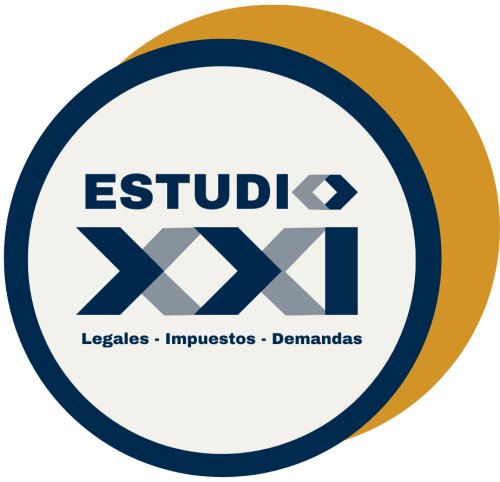Best Project Finance Lawyers in Paraguay
Share your needs with us, get contacted by law firms.
Free. Takes 2 min.
Or refine your search by selecting a city:
List of the best lawyers in Paraguay
About Project Finance Law in Paraguay
Project Finance is a specialized area of law and finance used to fund infrastructure and industrial projects. In Paraguay, this typically involves large-scale undertakings such as energy plants, roads, bridges, agro-industrial facilities, and public works. Project Finance structures rely on the projected cash flows generated by the project itself, as opposed to the balance sheets of the sponsors or investors. Security for lenders is usually based on project assets and future revenue streams. Project Finance in Paraguay often involves both private entities and the Paraguayan government working together, especially in sectors considered crucial to national development.
Why You May Need a Lawyer
Engaging in Project Finance transactions in Paraguay can be complex due to regulatory requirements, cross-border issues, and the involvement of multiple stakeholders. A lawyer specializing in this field can assist in:
- Structuring financial agreements for infrastructure or industrial projects
- Drafting and negotiating contracts between sponsors, lenders, and public entities
- Navigating regulatory approvals and compliance with local and international standards
- Managing risk allocation among project participants
- Resolving disputes regarding performance, payment, or contractual obligations
- Advising on taxation, foreign investment regulations, and repatriation of profits
Local Laws Overview
Project Finance in Paraguay is subject to several local statutes, as well as general commercial and contract law provisions. Key aspects include:
- The Public-Private Partnership Law (Law No. 5102/2013) which establishes the framework for collaboration between the state and private investors for infrastructure and public service projects
- Concessions Law and specific sectorial regulations (such as laws governing energy, transport, and telecommunications)
- Environmental laws requiring thorough assessments and compliance for eligible projects
- Restrictions and processes for foreign direct investment, including requirements for currency exchange and profit repatriation
- Securities and collateral arrangements for project assets, including mortgages and trust structures (fideicomiso)
- Tax incentives and exemptions under Paraguayan law, especially for large infrastructure initiatives
Frequently Asked Questions
What is project finance and how does it differ from traditional financing?
Project finance is funding based primarily on the project's expected cash flows, with repayments secured by the project's assets and revenue. Unlike traditional financing, it does not rely on the sponsor's balance sheet alone.
Can foreign investors participate in project finance transactions in Paraguay?
Yes, foreign investors can participate either independently or in partnership with local entities. Paraguay encourages direct foreign investment but there are specific compliance and registration protocols that must be observed.
Are there particular sectors with more opportunities for project finance in Paraguay?
Energy, transport, water infrastructure, telecommunications, and agro-industry are sectors with significant opportunities due to Paraguay's development priorities and recent government initiatives.
What legal entities are commonly used to structure project finance ventures?
Special Purpose Vehicles (SPVs) are commonly established as corporations (Sociedad Anónima) or in trust (fideicomiso) to isolate project assets and risks from sponsors’ other business operations.
What forms of security or collateral are usually requested by lenders?
Mortgages on immovable assets, pledges on movable assets, assignment of future receivables, and escrow or trust accounts are commonly used to secure loans.
How are disputes related to project finance typically resolved?
Disputes may be resolved through Paraguayan courts or via arbitration, especially if agreed to in the contractual framework. Many large projects prefer international arbitration for neutrality.
Are there any tax benefits for project finance initiatives in Paraguay?
Yes. The government may grant exemptions or reductions in value-added tax (VAT), import duties, and other local taxes for qualifying infrastructure projects under special regimes.
What is a Public-Private Partnership (PPP) and how is it regulated?
A PPP is a contractual arrangement between the government and private sector to fund and operate infrastructure or services. It is regulated mainly by Law No. 5102/2013 and subject to transparency and competitive bidding procedures.
What environmental regulations must be considered?
All major projects must comply with environmental regulations, including carrying out environmental impact assessments and obtaining relevant permits before operations begin.
What steps are involved in financing a major project in Paraguay?
Typical steps include legal due diligence, setting up a project company or SPV, negotiating contracts, arranging for licenses and permits, securing financing and collateral, and continuous regulatory compliance during construction and operation.
Additional Resources
Individuals and businesses seeking more information or support can contact the following organizations:
- Ministry of Public Works and Communications (MOPC) - Oversight for infrastructure and PPP projects
- Ministry of Finance - Information on tax incentives, project registration, and public tenders
- National Directorate of Public-Private Partnerships (DNAPP) - Guidance on PPP processes and opportunities
- Central Bank of Paraguay - Regulations for financing arrangements and foreign investment
- Paraguay Investment and Export Network (REDIEX) - Assistance for foreign investors and exporters
- Paraguayan Bar Association - Referrals to specialized legal professionals
Next Steps
If you are considering a Project Finance opportunity in Paraguay, follow these steps for a smooth process:
- Start by outlining your project goals and identifying the parties involved
- Compile all relevant documentation, including business plans and investment proposals
- Consult with a qualified Paraguayan legal professional with expertise in Project Finance
- Request legal advice on structuring, compliance, and risk management
- Engage with local authorities and regulatory agencies to understand permit and reporting requirements
- If foreign investment is involved, seek guidance on currency, tax, and profit repatriation protocols
Lawzana helps you find the best lawyers and law firms in Paraguay through a curated and pre-screened list of qualified legal professionals. Our platform offers rankings and detailed profiles of attorneys and law firms, allowing you to compare based on practice areas, including Project Finance, experience, and client feedback.
Each profile includes a description of the firm's areas of practice, client reviews, team members and partners, year of establishment, spoken languages, office locations, contact information, social media presence, and any published articles or resources. Most firms on our platform speak English and are experienced in both local and international legal matters.
Get a quote from top-rated law firms in Paraguay — quickly, securely, and without unnecessary hassle.
Disclaimer:
The information provided on this page is for general informational purposes only and does not constitute legal advice. While we strive to ensure the accuracy and relevance of the content, legal information may change over time, and interpretations of the law can vary. You should always consult with a qualified legal professional for advice specific to your situation.
We disclaim all liability for actions taken or not taken based on the content of this page. If you believe any information is incorrect or outdated, please contact us, and we will review and update it where appropriate.
Browse project finance law firms by city in Paraguay
Refine your search by selecting a city.














